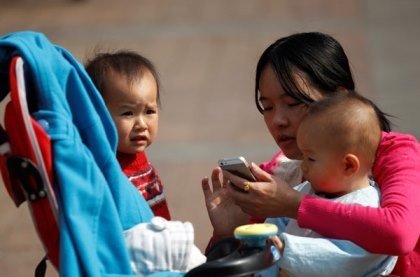Couples in Beijing who have applied to have a second child since China eased its one-child policy last year have reached more than 40,000, but the number is still short of the government's annual target of 50,000 to address the country's low birth rate.
The Beijing Municipal Commission of Health and Family Planning said that it has received 42,075 applications for a second child, with 38,798 of them already approved. Out of the applicants, 57 percent were between the ages 31 and 35 years old, 23 percent were between 26 and 30, and 2 percent were above 40 years old.
Couples are allowed to have a second if either spouse is an only child, under the relaxed policy. In Beijing, which has a population of 21 million, some 450,000 couples are qualified to have a second child.
Lu Jiehua, a professor of social demography at Peking University, told the Global Times that despite the increase in the number of applicants, the number still missed the government target of 50,000 a year.
"It has been 15 months since the policy was implemented, there should have been more than 60,000 applications by now," Lu was quoted as saying.
"The government initially predicted that 60 percent of qualified couples would apply, but many do not want to have a second baby because of their career, financial status and lack of time to take care of children," the professor added.
In Nanjing, capital of Jiangsu Province, the government only received 12,766 applications as of March, out of 270,000 qualified couples, the local news site yangtse.com reported.
China's fertility rate is 1.18, which is much lower than the international maintenance level of 2.1.
Lu said that the government may provide more incentives to couples by simplifying the application process and giving consultation services to encourage couples to apply.
The National Health and Family Planning Commission has recorded about one million applications around the country since January.



























